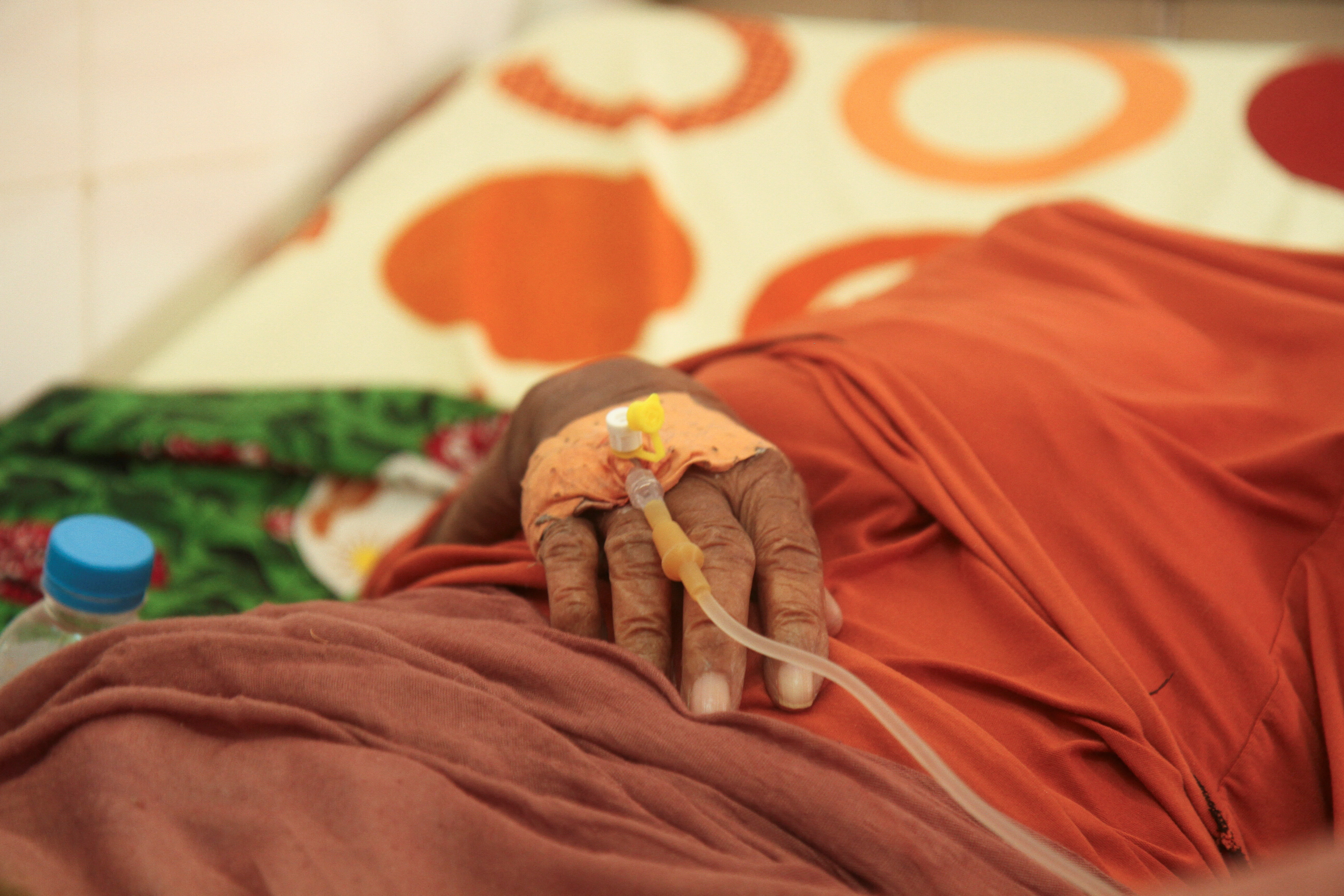Mpox vaccines delivered, and other top health stories
The EU has pledged more than 500,000 mpox vaccines to affected African countries.
Image: Wikimedia Commons/Marco Verch
- This global round-up brings you health stories from the past fortnight.
- Top health news: Mpox vaccines delivered to Democratic Republic of Congo; US plans to cut road traffic deaths; Cholera cases and deaths rise, says WHO.
1. Mpox vaccines delivered to Democratic Republic of Congo
More Mpox vaccines have been delivered to countries in Africa, with an uptick in vaccine donations after the World Health Organization (WHO) declared a global public health emergency in response to the outbreak.
Reuters reports that efforts to contain the outbreak have been "hampered by a lack of vaccines". However, efforts are now ramping up.
The European Union and member states have pledged to deliver more than half a million doses to affected African countries. The first doses reached the Democratic Republic of Congo on 5 September. The EU said at the time they would deliver vaccines to Burundi next.
However, concerns remain about the speed of delivery and better cooperation is needed to ensure the fair distribution of vaccines, medicines and diagnostics tests, say experts.
2. US outlines plan to cut road traffic deaths
The United States Transportation Department has announced $1 billion for a series of projects aimed at cutting traffic crashes, with road deaths remaining significantly higher than before the pandemic.
Over 18,000 people were estimated to have died in motor vehicle traffic crashes in the first 6 months of this year. This represents a drop from the first half of 2023, but rates remain significantly up from the first half of 2019, when just over 17,000 people were killed.
Among the 350 projects that have been awarded funding are a $29.8m project in Los Angeles to improve safety at 77 intersections, efforts in Chicago to improve safety in the North Avenue corridor, and work at 15 intersections in Savannah, Georgia.
Separately, the National Highway Traffic Safety Administration has announced plans for future vehicles to be redesigned to reduce the risks of serious or fatal injuries in crashes involving pedestrians.
What is the World Economic Forum doing to improve healthcare systems?
3. News in brief: Health stories from around the world
A campaign to vaccinate 200,000 children in north Gaza against polio began on 10 September, although health and aid officials have warned of a complex operation. The first type 2 polio case in the territory for 25 years was identified last month.
The US has announced plans to beef up testing and surveillance for a new strain of mpox. Senior administration officials also said they'd work to make sure that vaccines are readily available at local pharmacies and community health centres.
A new study, published in the Journal of Neurology, Neurosurgery and Psychiatry, has found that concussions in amateur sports are not linked to longer-term risks of cognitive decline.
A group of researchers, commissioned by the WHO, reviewed thousands of studies in a new analysis, which has shown no link between mobile phones and brain and head cancers.
New guidelines from the Swedish Public Health Authority have called for no screen time for children under two at all, and teenagers should have no more than three hours of screen time per day.
Intermittent shortages of the diabetes drug Ozempic in the EU are not expected to affect all member states, the drug's maker has said. However, Novo Nordisk has recommended that healthcare workers continue to limit the treatment initiation of new patients.
The WHO has published new statistics that show an increase in global cholera cases and deaths in 2023. Reported cases rose by 13% and deaths by 71% compared to 2022. At least 4,000 people died last year from the preventable disease.
A report has found that a scheme in England that prescribed time in nature led to significant improvements in mental health.
4. More on health from our blog
A fifth of children and adolescents globally are overweight or obese. Responding to childhood obesity is a public health priority – and a multifaceted approach is needed.
Brain health disorders contribute up to 15% of the global disease burden. Tackling these could have societal, health and economic benefits, write authors from the World Economic Forum, McKinsey & Company and Rice University.
New research has found that urban birds are carriers of antibiotic-resistant bacteria. Antimicrobial resistance could kill 10 million people a year by the middle of the century – here's what we can do about it.
Accept our marketing cookies to access this content.
These cookies are currently disabled in your browser.
More on Health and Healthcare SystemsSee all
James See
November 7, 2025
Shyam Bishen
November 5, 2025
Naveena Nekkalapudi
October 31, 2025
Mariam Adebayo
October 30, 2025





